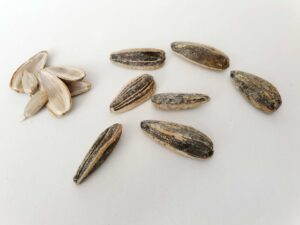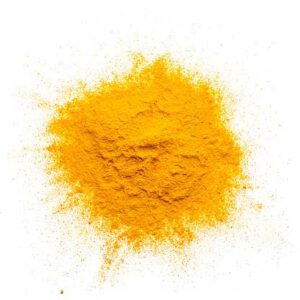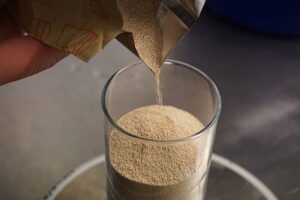Electrical messages from your brain and spinal cord go through your nervous system via your nerves. These signals regulate every biological function, including heart rate, digestion, pH levels, muscular movements, and so on.
Unfortunately, when we consume sugar, junk food, and chemicals from the environment, our nerves, particularly those in our feet and hands, are readily injured. This might cause tingling, burning, or shooting discomfort in the toes. In more severe situations, you may have numbness, loss of balance, ringing in your ears, or muscle weakness. This sort of nerve damage is known as peripheral neuropathy, and it can be addressed by eating the correct vitamins and nutrients.
Oily Fish

Oily fish are high in omega-3 fatty acids, which assist to reduce inflammation throughout the body and heal damaged nerves. Because the human body cannot produce omega-3s, we must obtain them from meals such as salmon, sardines, mackerel, herring, anchovies, and tuna. The DHA present in fish serves as the raw material for the formation of new healthy nerve cells, whereas the EPA decreases inflammation around the nerve tissue, allowing it to repair.
If you don’t like fish, you can take a virgin cod liver oil supplement to help repair damaged nervous system and relieve joint discomfort and swelling.
Avocados

Avocados are among the most potent superfoods on the planet, with each one holding an incredible 800mg of potassium on average. Potassium aids in the production of nerve impulses, which determine how your muscles relax and contract. This can help control your heart rate, minimize muscle cramps, and protect your nerves from the effects of high blood sugar.
Dairy

The body requires 7-9 hours of sleep per night to replenish and protect the neural system. According to studies, more than one-third of the population suffers from sleep disorders, which can cause nerve damage and result in issues such as anxiety, chronic nerve pain, peripheral neuropathy, and depression.
Dairy foods contain L-tryptophan, an essential amino acid that helps you sleep better at night by increasing particular neurotransmitters in the brain. Tryptophan is abundant in Greek yogurt, milk, grass-fed cheese, and cottage cheese.
Read Also: Turmeric Milk for Health
Clams & Shellfish

It is critical to achieving your daily Vitamin B12 requirements when it comes to supporting the neurological system. This nutrient is abundant in clams, mussels, and oysters, so eating a portion of these shellfish at least once a week is recommended. B12 (Cobalamin) aids the body in the production of red blood cells, which nourish and feed your neurons.
Without it, the protective layer around your nerves known as the myelin sheath is destroyed, resulting in chronic nerve pain and neuropathy.
Sunflower Seeds

100g of sunflower seeds contain 234% of the daily need for Vitamin E, a potent antioxidant that protects nerves from free radical damage. These seeds are also high in magnesium, a mineral that is involved in hundreds of different chemical events in the body, from DNA formation to muscle contraction.
Magnesium relaxes the nerves and muscles, which aids in the treatment of nerve-related high blood pressure, migraine headaches, muscle cramps, and anxiety. Most importantly, it alleviates aches and pains caused by sciatica, neuralgia, fibromyalgia, and inflammation.
Bone Broth

Don’t miss bone broth. Bone broth is a liquid created from cooked animal bones that is one of the most effective nerve treatments. It contains glutamine, the most prevalent amino acid in the body. Glutamine is well-known for promoting healthy digestion by supplying fuel for the cells in your digestive system, so aiding in the treatment of conditions such as IBS, Crohn’s disease, and autoimmune diseases such as arthritis and neuritis.
Not only is but glutamine also used to create neurotransmitters, which transport messages between nerves.
Read Also: Easy Ways to Healthy Eyes
Turmeric

Turmeric helps to battle arthritis, Alzheimer’s disease, depression, and heart disease. This superfood contains curcumin, a biologically active substance with significant anti-inflammatory properties. It alleviates nerve pain by blocking inflammatory pathways in the body. Nota bene: Adding black pepper to turmeric increases absorption of the active component curcumin by 2000%.
Nutritional Yeast

Nutritional yeast is a sort of deactivated yeast that is intended to be used as food. Except for B12, this has a cheesy/nutty flavor and is one of the greatest sources of the B-Vitamin complex in the world. The different B vitamins found in these flakes, particularly B1, are vital for assisting neurons in healing from microvascular injury and excessive blood glucose. If you have diabetes, it is critical to supplement with B vitamins to protect your nervous system from ongoing harm.
Beef

High-quality grass-fed beef includes a variety of nutrients such as zinc, iron, omega-3s, B12, selenium, and other B vitamins. These nutrients are important for nerve health. The zinc mineral contained in beef is heavily utilized by the brain and nervous system in the production of neurons, neurotransmitters, and hormones.
You should also consider consuming beef liver, which is high in CoQ10. All cells in the body utilize CoQ10 to produce energy in the mitochondria. Nerve cells require more energy than other cells, thus including more of this in your diet can aid to fuel the nerves.
Read Also: Amazing Health Benefits of Pistachios
Chia Seeds

Ancient civilizations referred to chia seeds as “warriors’ food” because of their potential to improve energy levels and physical performance. This is owing, in part, to their high calcium concentration. Calcium is commonly associated with strong bones and teeth. It also helps the nervous system and enhances cell structure and blood flow. It also aids in the formation of pathways for brain cells to communicate with one another. Add 1 tablespoon of chia seeds to your daily diet for increased energy and to aid in nerve healing.
Chili Peppers

Chipotle Peppers Capsaicin, the main component in chili peppers, is what makes them fiery and hot. Consuming chilies and capsaicin decreases pain and swelling in those suffering from arthritis, post-surgical pain, and neuralgia, according to research. Capsaicin is also incorporated into various pain treatment gels and patches that can be applied directly to the skin.
Coconut Oil

Coconuts are high in important nutrients and electrolyte minerals, which help to maintain healthy nerves and nerve communication. The greatest noteworthy advantages, however, come from raw coconut oil, which is high in medium-chain triglycerides (MCTs). By directly feeding brain cells, these MCTs give an alternate fuel source to glucose. These can boost brain function and memory. MCTs have the potential to bypass damaged tissues and provide crucial energy to the billions of cells in your body, including the neurological system.
Read Also: The Unknown Benefits of Coconut Milk
Berries

Berries are well known for their high antioxidant content. Studies reveal that they are also beneficial to the neurological system. Raspberries, strawberries, and blueberries contain anthocyanins. These are anti-aging chemicals, which can pass the blood-brain barrier and protect neurons from the harmful effects of aging. Berries may help protect against Alzheimer’s disease, anxiety, depression, and other neurodegenerative disorders.
Brussels Sprouts

Brussels sprouts contain trace levels of alpha lipoic acid. Alpha lipoic acid assists with nerve healing. The body uses this molecule to break down carbs and create energy for the organs and cells. Its antioxidant characteristics aid in the treatment of diabetic neuropathy.
